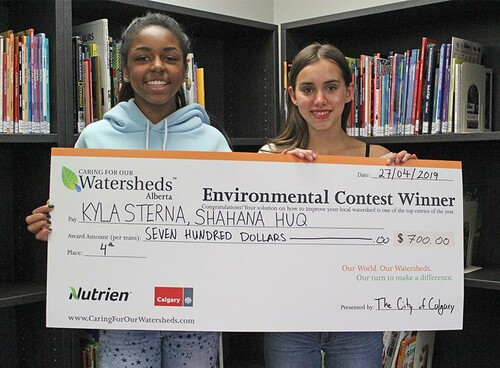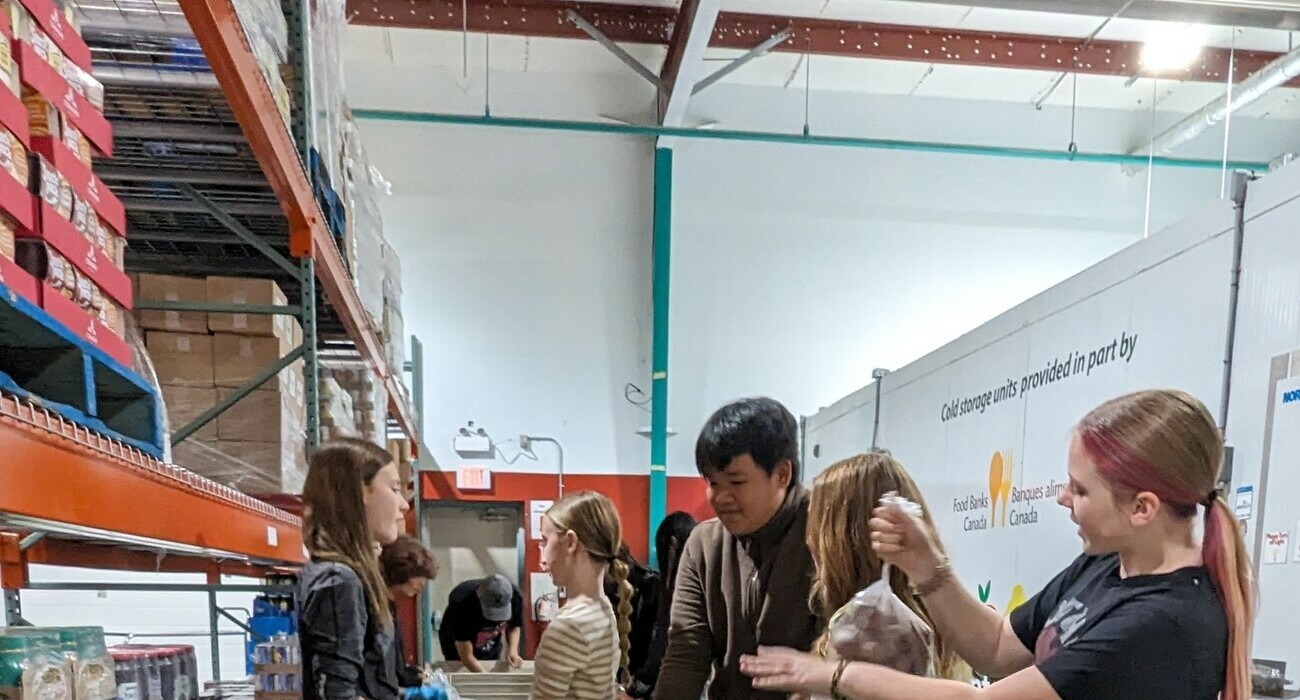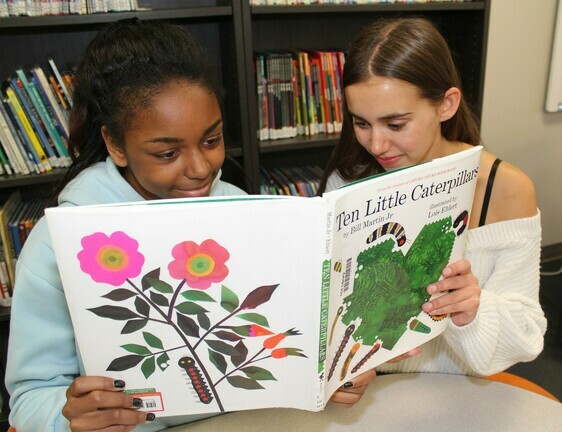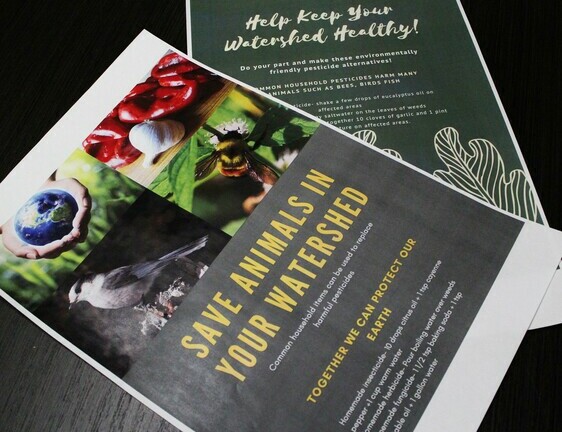
CALGARY – It was Shahana Huq and Kyla Sterna who brought home the prize money, but Michelle Duimel considers all of her Science 9 students winners in the long run.
The Trinity Christian School principal and science teacher was looking for ways to better engage her students when she swapped out a science project in favour of an environmental, problem-solving, competition. A top-four placing by the 15-year-old tandem of Huq and Sterna in a field of 375 entries only put an exclamation mark on the decision.
“We’ve really been talking a lot in our school about what we can do to really make the curriculum come alive for the students and be more than just knowledge for them,” says Duimel. “We also want to help them see there are things they can do in this world, even now at this age, and not have to wait until they have figured out their career path, or become an adult.”
The Caring for our Watersheds educational program proved to be a hands-on project that took learning to a new level. Huq and Sterna responded in kind.
The competition was open to students in Grades 7 to 12 in the southern portion of the province. The project saw them submit a proposal on what they could do to improve their watershed. Students identified an environmental concern and came up with a realistic solution.
Students in Duimel’s two Grade 9 science classes all submitted entries, whether solo or in teams. Topics ranged from filtering helicopter emissions to a cleanup of nearby Fish Creek. Huq and Sterna researched the impact of pesticides on bees, and tested eco-friendly alternatives featuring household ingredients.
When they first learned they’d made the top 10, they were surprised to say the least.
“I opened my email from Mrs. Duimel and I was like, ‘are you sure this is right?’ We were both kind of freaking out,” says Sterna.
The next step of the competition saw the top 10 entries convert their written proposals into an oral and PowerPoint presentation provided for another panel of judges. After the presentations – which ranged in topic from ‘Bioswale’ to ‘Plants in the Classroom’ – the results were announced in reverse order of finish, starting with 10th.
Duimel, who was there cheering on her students, says the anticipation and excitement built each time another placement was announced. The girls, meanwhile, say they were a little surprised at how well they finished considering the quality of the other presentations.
Huq and Sterna earned $700 in prize money for the finish, while Trinity Christian School gained matching funds and then another $100 for the number of proposals it submitted.
The fact it was two teenaged girls who led the school’s charge was not lost on their principal.
“One of my goals in teaching Science 9 – and I’ve been doing it for six years now – has been to get Grade 9 girls excited about science and to love it,” says Duimel. “There is such a stigma for them. It’s like ‘aww science. I don’t like it and I can’t do it and I‘m not good at it,’ and that’s something I’d like to change.”
She was proud of how all her students rose to the challenge, and took it “beyond just knowledge, to application.”
As for Huq and Sterna, they too would like to see more projects of a similar fashion.
“Just opening up a textbook is kind of boring. You want to get involved and kind of see what you can do, which I think is more impactful,” Huq says, adding she didn’t know before the contest how big an issue pesticides are. “They can not only hurt bees but also birds, and that impacts the whole eco-system.”
Sterna says she learned that pesticides can also affect humans in the areas of cancer and other diseases.
As for the money Trinity Christian School earned, Duimel says she’d like it to go towards Science 9 resources and will ask her student to brainstorm on how they think it might be best spent. The girls already have plans for their prize money, with both planning to invest in some cell phone repairs and a grad dress.



